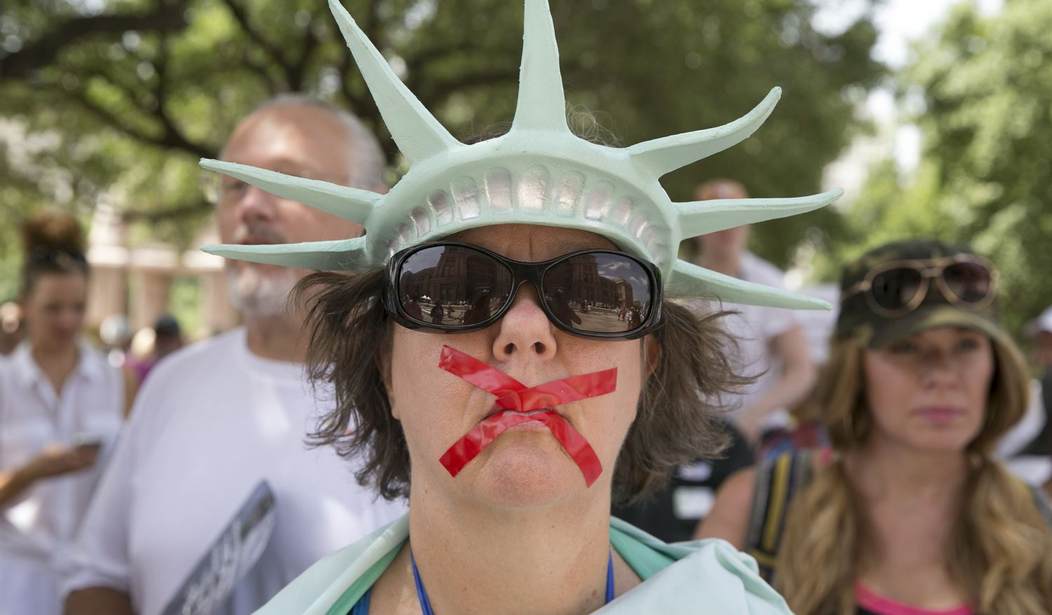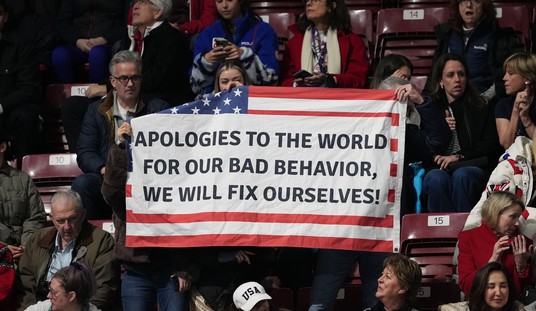If you want to be “inclusive” in modern America, your first step is to start excluding things. Among the most commonly discarded undesirables: words.
Apropos of exclusionary inclusion, the University of North Carolina (UNC) has issued edicts concerning what anyone should ever say. The school’s Student Affairs Communications department is trying to help students communicate by telling them to shut up — at least concerning certain syllables.
The Inclusive Language webpage provides a list of all the language that must be excluded. But first, an explanation of how virtuously inclusive that is:
Carolina is committed to creating an inclusive and equitable learning environment for every Tar Heel. To fully represent the diversity of our students, faculty, staff and everyone in our community, it is important to use language that supports these values. This inclusive language guide can act as a starting point for communicating in a way that supports a diverse and welcoming community.
A few of the demanded edits have been around for a while — “stewardess” is replaced by “flight attendant” to serve those constant discussions college students have about airplane waitresses. “Congressman” is supplanted by “legislator,” and “chairman” is ousted in favor of “chairperson.” Beyond that, no one is any longer “elderly” or “poor.” Those designations will be excluded, because the Student Affairs office traffics in inclusion.
Non-Inclusive –> Inclusive
- the elderly –> older adults
- disabled person, physically challenged –> person with a disability, person who has a disability, person with a mental illness, person with a hearing loss, wheelchair user
- homeless –> people experiencing homelessness, people who are homeless
- illegal immigrants –> individuals who are undocumented, people who are undocumented, undocumented people, DACA students
- low income and poor –> people whose incomes are below the federal poverty threshold, people whose self-reported income was in the lowest income bracket
Although we’re informed that gender is the sex-related concept with which someone identifies — and also that gender is fluid — UNC orders its enrollees to never call pronouns “preferred.” Such an error “implies a choice about gender.”
Additionally:
Don’t use terms that imply binaries, e.g., “opposite sex.” Instead, use the terms “another sex” or “another gender.”
As for descriptions of relationships, UNC says to use “‘mixed gender’ for partners who have different genders or sexes.” Conversely, employ “‘same gender’ for partners who have the same gender or sex.”
In the area of transgenderism, options abound:
(Use) “gender-nonconforming,” “gender queer,” “nonbinary,” “gender-expansive,” “agender,” (and) “Two-Spirit.”
However, if you were born with a penis and XY chromosomes — and if you claim nothing in defiance of being a dude — you’re not merely a man; you’re a cissy…
Use specific nouns to identify people or groups of people, APA Style Guide (7th Ed.).
Examples:
- transgender men
- trans men
- transgender women
- trans women
- cisgender women
- cisgender men
- gender-fluid people
Speaking of being a man, there is no such thing; those guys have been excluded. All hail inclusion:
- mankind –> people, human beings, esteemed guests, students
- freshman –> first-year student
- man-made –> machine-made, synthetic, artificial
- the common man –> the average person
- mailman –> mail carrier, letter carrier, postal worker
- policeman –> police officer
- sir (as in “Dear Sir,” etc.) Dear First/Last Name, Dear Editor, To Whom it May Concern, etc.
- ladies and gentlemen –> friends, colleagues, esteemed guests, students
- mother and father –> parent/guardian/family
- men and women –> everyone, folks, all people, people of all genders
- he or she –> they, that person, the guest
- man –> person, individual
The University of North Carolina isn’t the only institution excessively excluding normal things so inclusion becomes excessively normal. Edicts of edits abound:
To Be Inclusive of Non-Binary Parents, Hospitals Nix the Terms ‘Breast Milk’ and ‘Father’
‘All-Inclusive’ University Cultural Center Hosts a BBQ ‘Intended’ for Everyone but White People
Girl Power, Be Gone: All-Female School Abandons ‘She’ and ‘Her’ for Something More ‘Inclusive’
Utah Public University’s ‘Inclusive Style Guide’ Forbids Students to Say ‘Biologically Male/Female’
University Professor on ‘Diversity and Inclusion’ Panel Announces She Keeps Away From White People
It’s a new era, and things seem more sophisticated than ever. Among such complexity, it’s understandable that powers which force inclusivity upon us might accidentally include exclusion by excluding inclusion. Hopefully, they’ll at some point include in their endeavors a dictionary, so they can include an understanding of the word “inclusive.” Until then, we’ll just have to keep excluding more things until everything is somehow included.
-ALEX
See more content from me:
Sex Ed: Cartoon Network Teaches Seven-Year-Olds Some People Are Neither Girls Nor Boys
Find all my RedState work here.
Thank you for reading! Please sound off in the Comments section below.














Join the conversation as a VIP Member